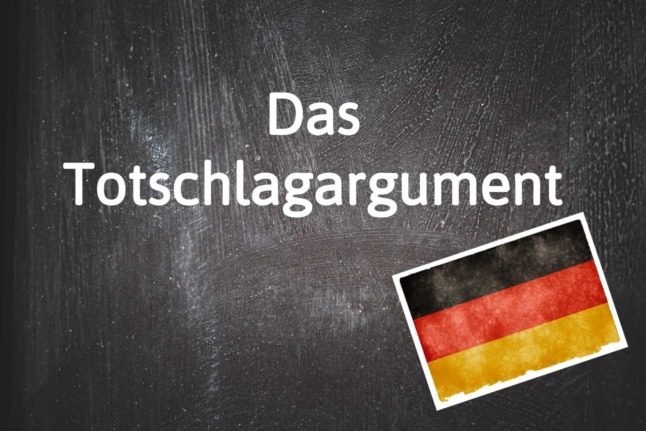This compound noun is made up of ‘Totschlag’, meaning homicide or manslaughter, and ‘Argument’. Together it translates roughly as ‘knockout argument’ or ‘killer argument’. the final point you might make in a debate or dispute which ends the conversation completely.
However, it does not have the positive connotations that you might find in English when translating it as ‘killer argument’ or ‘knockout argument’. The point is not generally an effective or convincing one, but it is designed to end the conversation in bad faith.
The argument is intended to divert your listener from the point at hand to a completely irrelevant aspect of the debate, in extreme cases to something which is taboo or sensitive so that the other party has no real way to respond.
One example is raising a sensitive aspect of a country’s history in order to discredit your debating opponents’ nationalities in debates about international sport, food or music. Even though every party in the discussion recognises that it is spurious and illogical, nonetheless it is guaranteed to kill the conversation because of a prevailing sense of awkwardness or an unwillingness to become embroiled in more serious debate.
READ ALSO: Eight unique words and phrases that tell us something about Germany
The Totschlagargument could also be a red herring, or simply an argument which dampens the imagination of all of the participants by resorting to meaningless platitudes such as “that sounds good in theory but wouldn’t work in practice”, or “if that were a good idea someone would have already tried it before now.”
You can find Totschlagargumente in the workforce, at home or even in politics. It’s a frustrating technique used to distract from important questions, most likely out of pettiness or stubbornness – but we can’t deny that all of us have used it at one time or another.
Die Killerphrase (killer phrase) is used as a synonym to Totschlagargument and has the same connotations.
Here’s how to use it…
Es ist möglich, die häufigste Totschlagargumente zu kontern, indem man ruhig und vernünftig bleibt.
It is possible to counter the most commonly used ‘killer arguments’ by staying calm and reasonable.
Es ist oft schwer, gegen ein Totschlagargument etwas zu sagen.
It is often difficult to say anything against a knockout argument.




 Please whitelist us to continue reading.
Please whitelist us to continue reading.
Member comments